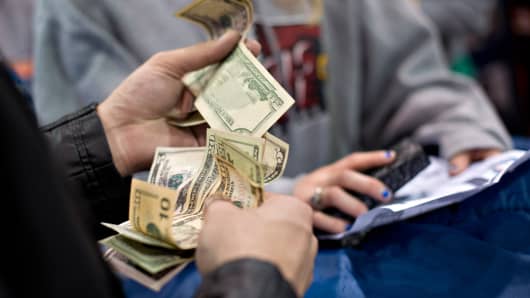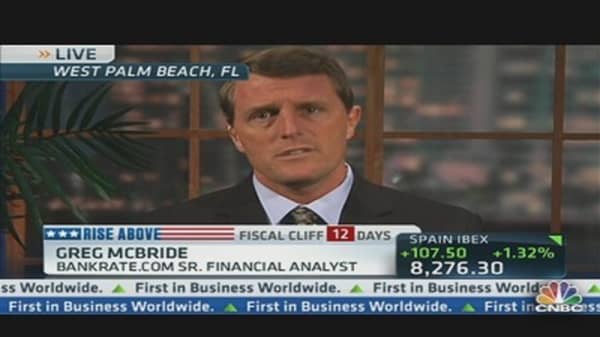No matter what happens with the "Fiscal Cliff," every working American is likely to see a substantial pay cut after Jan. 1—and that could slow the economic recovery.
That's because the payroll tax holiday, which was launched in 2010 to help spur consumer spending, is scheduled to end this month. Though there's a chance it might be extended under a fiscal cliff deal, it's mostly been on the back burner with lawmakers.
The tax holiday lowered taxes for some 160 million Americans. Instead of paying a 6.2 percent rate, they've paid 4.2 percent. That meant a worker making $50,000 saw an increase of $960 for the year, while someone making $100,000 had over $1,900 in extra spending money. (Read more:AMT Patch in Cliff?)
"It's been a very effective tax cut for the economy," said Mark Zandi, chief economist with Moody's. "It's kind of the Rodney Dangerfield of taxes in that most people are not aware of it but it could bring on a significant hit to growth if it ends."
The payroll tax cut—part of the Obama administration's deal with Congress in 2010 over extending the Bush tax cuts— was only supposed to be a temporary fix, and that's why it hasn't taken a bigger role in the fiscal cliff talks, say analysts.
But it's clear that the coming increase in payroll taxes will hurt consumers in the pocketbook and slow an already sluggish economy.
"The impact will be hard on consumption as that makes up 70 percent of U.S. GDP," said Timothy Nash, an economics professor at Northwood University in Midland, Michigan.
"Where it will show up most is in retail, dining out and vacations," Nash said. "It also means lost revenue on savings and investments."
The intent of the payroll holiday—to help stimulate the economy and specifically consumer spending—seems to have worked. According to a report by Moody's Analytics, every $1 cut in the payroll tax expanded the economy by $1.27.
At the same time, projections for the payroll tax hike say it would reduce disposable income by $125 billion each year and slow overall GDP by 0.6 percentage point.





